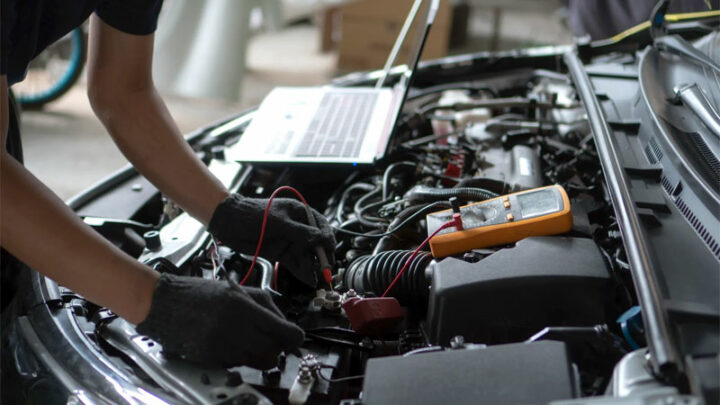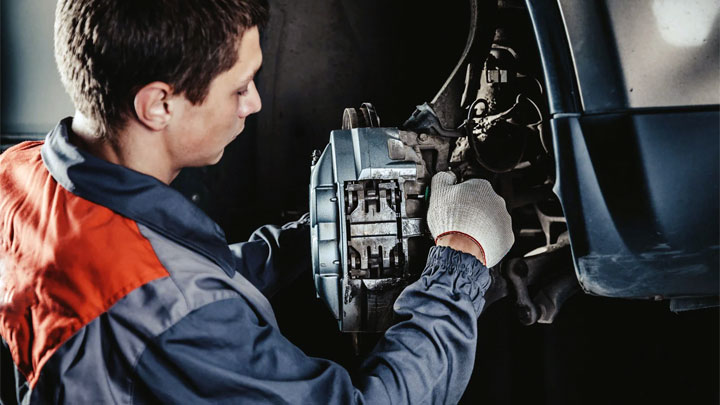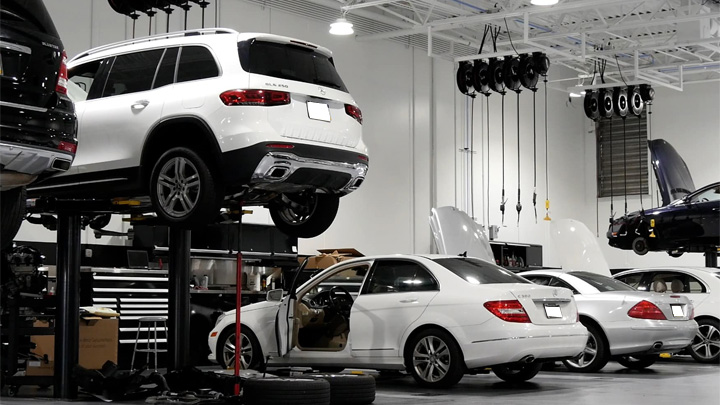Automotive Technician vs Mechanic (What’s the Difference?)
In the past, the terms “mechanic” and “technician” have been used interchangeably by many. However, these two automotive service positions actually differ from one another in terms of scope and responsibility.
While this might seem confusing, there are a number of key differences of value worthy of note to vehicle owners looking to attain quality service, as well as those interested in entering the automotive repair field themselves.
Below, we will discuss several of the most notable differences between automotive mechanics and technicians, while answering many key questions that are often posed during discussions on the matter.
- Mechanics: generally entry-level, routine inspection/repairs, parts replacement
- Technicians: more formal training, higher pay, complex diagnoses
- Both: work alongside one another, repair vehicles, start careers in service bays (oil changes, tire rotations, etc.)
Automotive Mechanic

Job Description
Automotive mechanics typically tackle straightforward repairs, requiring the replacement of individual components, as well as basic service-related needs.
Their duties often include performing oil changes, replacing filters, repairing brakes, and servicing air conditioning systems. They may also be involved in tire rotations and alignments, as well as replacing worn or faulty parts such as spark plugs, belts, and hoses.
Mechanics typically follow a checklist to ensure they examine all critical vehicle components, including the engine, transmission, and suspension systems.
Salary
$40,000-$80,000 annually.
Automotive mechanic salaries can vary widely depending on factors such as experience, location, and the type of employer.
Education
Mechanics often start with on-the-job training, where they learn basic maintenance and repair tasks under the supervision of more experienced mechanics. Some may also attend technical schools to receive more formal education in automotive repair, which can include courses on various vehicle systems, electronics, and diagnostics.
Additionally, manufacturer-sanctioned training programs may be available for mechanics who wish to specialize in working on vehicles from a specific brand.
Work Environment
The work environment for mechanics is primarily based in automotive shops, which can range from small, independent shops to large dealership service departments. These environments are typically equipped with lifts and tools necessary for vehicle maintenance and repair.
Mechanics may work in teams or independently, and the job often requires physical dexterity and the ability to work in various postures, such as standing for long periods, bending, or lifting heavy objects.
Automotive Technician

Job Description
Automotive technicians are tasked with diagnosing and repairing complex issues that often require the use of specialized tooling and advanced diagnostic equipment such as OBD-II scan tools and multimeters.
They interpret data from diagnostic tests to understand the root cause of a vehicle’s issues and perform precise repairs. Technicians must keep up with the latest automotive technology and may specialize in areas such as hybrid technology, diesel engines, or high-performance systems.
Salary
$60,000-$100,000+ annually.
The salary range for automotive technicians reflects their advanced skill set and the additional education and certifications they may possess. Technicians who work in specialized fields or at high-volume dealerships can command higher salaries, and those with significant experience and certifications can earn at the top end of the range or even more.
Education
Automotive technicians often begin their careers as mechanics and then further their education at technical colleges, which offer comprehensive programs that cover advanced automotive systems, electronics, and computerized diagnostics. These programs typically lead to an associate degree or certification in automotive technology.
In addition, many technicians obtain manufacturer-specific training, which allows them to work on particular brands of vehicles and become certified in proprietary systems and technologies. Continuous education is important for technicians to stay current with the rapidly evolving automotive industry.
Work Environment
Technicians work in similar environments as mechanics, such as dealerships and independent repair shops. However, their roles often involve more indoor work, focusing on diagnostic computers and technical problem-solving.
Many techs work in well-lit, well-ventilated areas that are equipped with the latest diagnostic hardware and software.
As technicians gain experience and demonstrate strong customer service and management skills, they may advance to positions such as service writer, service manager, or shop owner. These roles involve more administrative duties, customer interaction, and oversight of shop operations, often requiring less hands-on repair work.
Does It Matter Who Works On Your Vehicle?

In most instances, the scope and complexity of the job at hand directly dictate whether you need a mechanic or technician to be the running point on a particular repair. This is due to the fact that the two jobs themselves differ slightly in their responsibilities and specific areas of expertise.
Therefore, you’ll want to ensure that your vehicle is taken to the correct shop for the issue with which it is burdened.
If you are attempting to have a relatively straightforward issue repaired that can be identified through basic visual inspection, then a mechanic is the man for the job.
Such jobs include the replacement of worn U-joints, dilapidated belt tensioners, and leaking gaskets. Simply put, virtually any issue that requires minimal diagnostic effort can be repaired by a skilled mechanic.
On the other hand, technicians are trained to diagnose issues that are more complex issues. Such issues often prove to be electrical in nature, or are intermittent in nature.
Technicians often attend factory-sanctioned schooling, provided by the manufacturer for which they work. Additionally, many technicians also log credit hours at local technical colleges as well.
The difference between “mechanics” and “technicians” is relatively universal across the automotive industry. Even heavy-equipment and big-truck related technical careers are divided in the same manner. While diesel mechanics conduct much of the heavy-repair work in this sub-sector, diesel technicians often tackle more complex diagnostics as the need arises.
In the grand scheme of things, those who are experiencing complex or otherwise unexplainable technical issues should make sure to locate a shop with one or more strong technicians on-staff.
On the contrary, shops rich in seasoned mechanics should be quite adept at replacing failed individual automotive components, of varying complexity.
Future Outlook: Mechanics vs Technicians

Going forward, the demand for automotive technicians is likely to grow, while the demand for mechanics levels off, or decreases slightly. This is a continuation of a trend that has become quite evident over the past couple of decades.
As vehicles have grown ever more complex in their design, a greater emphasis has been placed upon the need for individuals who are capable of tackling intricate diagnostics.
In fact, upon reflection, automotive technicians and mechanics were virtually one and the same until 30 years ago, when modern automotive electronics debuted.
As these changes came to pass, it became evident that more than simple visual inspection was required to diagnose an issue, in many cases. Thus, the role of the automotive technician was born.
Automotive technicians are tasked with performing complicated electrical diagnostics and analyzing OBD-II generated data, much of which can easily fall outside of the skill set of many mechanics. To further hone these skills, technicians often attend factory-sponsored training. Many also enroll in technical college classes for the same reason.
Those looking to enter the automotive repair industry are best served focusing on attaining the rank of technician, though doing so might require proving oneself as a mechanic for several years initially.
Quality technicians are always in demand, and often make respectable wages because of this. In many cases, top technicians at busy dealerships can easily make $100,000 per year.
- P0480 Code (Symptoms, Causes, and How to Fix) - Apr 19, 2024
- Car Temperature Gauge Stopped Working? (Here’s Why) - Apr 15, 2024
- Ignition Coil vs Coil Pack (What’s the Difference?) - Apr 8, 2024
